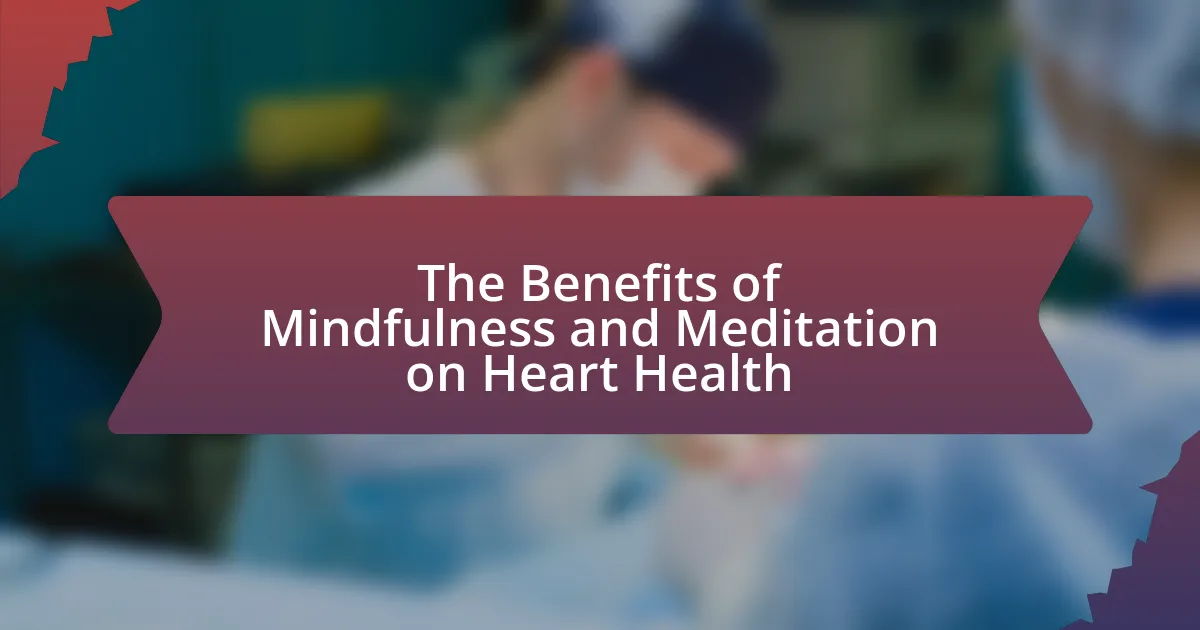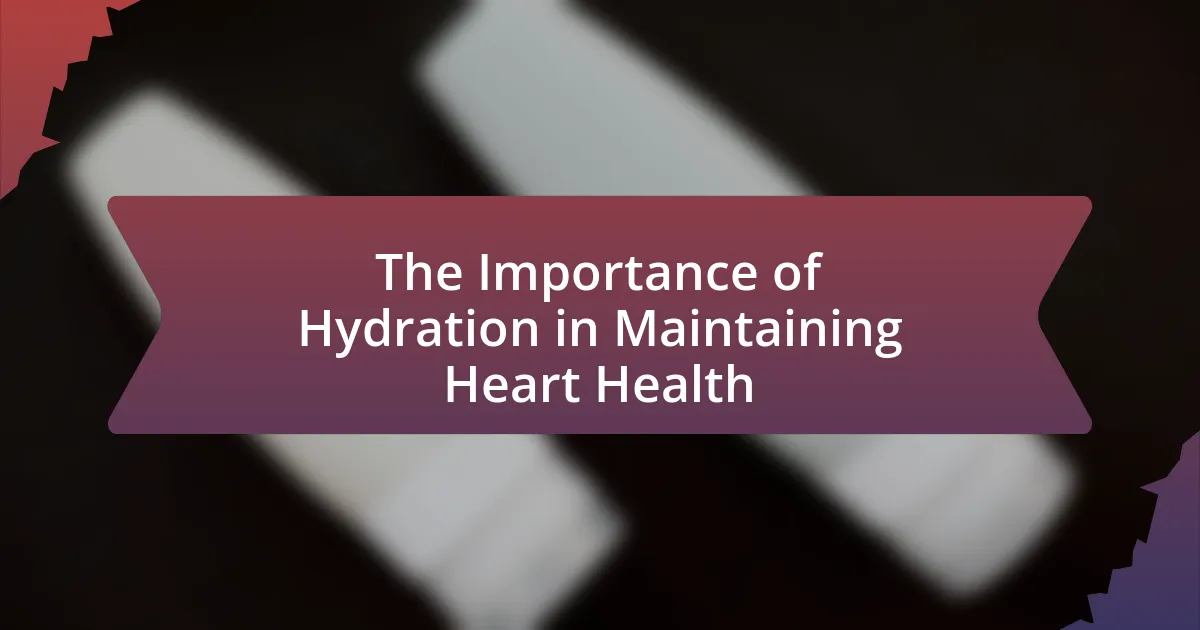Cholesterol is a waxy, fat-like substance essential for various bodily functions, including hormone production and digestion. The article explores the different types of cholesterol, specifically low-density lipoprotein (LDL), often labeled as “bad” cholesterol due to its association with heart disease, and high-density lipoprotein (HDL), known as “good” cholesterol for its protective role against cardiovascular issues. It discusses how cholesterol is produced in the body, its importance for health, and the risks associated with imbalances, including cardiovascular diseases and hormonal disruptions. Additionally, the article addresses lifestyle changes and dietary modifications that can help manage cholesterol levels effectively, while debunking common misconceptions about cholesterol’s impact on health.

What is Cholesterol?
Cholesterol is a waxy, fat-like substance found in every cell of the body, essential for producing hormones, vitamin D, and substances that help digest foods. It is carried through the bloodstream by lipoproteins, with low-density lipoprotein (LDL) often referred to as “bad” cholesterol due to its association with an increased risk of heart disease, while high-density lipoprotein (HDL) is known as “good” cholesterol because it helps remove other forms of cholesterol from the bloodstream. According to the American Heart Association, maintaining a healthy balance of these cholesterol types is crucial for cardiovascular health.
How does cholesterol function in the body?
Cholesterol functions in the body primarily as a structural component of cell membranes and as a precursor for the synthesis of steroid hormones, bile acids, and vitamin D. It maintains membrane fluidity and integrity, allowing cells to function properly. Additionally, cholesterol is essential for the production of hormones such as cortisol, estrogen, and testosterone, which regulate various physiological processes. The liver produces about 80% of the body’s cholesterol, while the remaining 20% is obtained from dietary sources. This dual source is crucial for maintaining adequate levels necessary for bodily functions.
What are the different types of cholesterol?
The different types of cholesterol are low-density lipoprotein (LDL), high-density lipoprotein (HDL), and very low-density lipoprotein (VLDL). LDL is often referred to as “bad” cholesterol because high levels can lead to plaque buildup in arteries, increasing the risk of heart disease. HDL is known as “good” cholesterol as it helps remove other forms of cholesterol from the bloodstream, thus reducing heart disease risk. VLDL primarily carries triglycerides, another type of fat in the blood, and is also considered atherogenic, meaning it can contribute to the formation of plaque in arteries.
How is cholesterol produced in the body?
Cholesterol is produced in the body primarily through a process called de novo lipogenesis, which occurs mainly in the liver. This process involves the synthesis of cholesterol from acetyl-CoA, a molecule derived from carbohydrates and fats. Enzymes such as HMG-CoA reductase play a crucial role in this pathway, catalyzing the conversion of HMG-CoA to mevalonate, a key intermediate in cholesterol biosynthesis. The liver can produce approximately 1,000 milligrams of cholesterol per day, which is essential for various bodily functions, including the formation of cell membranes and the synthesis of hormones.
Why is cholesterol important for health?
Cholesterol is important for health because it plays a crucial role in the formation of cell membranes, the production of hormones, and the synthesis of vitamin D. Specifically, cholesterol is a structural component of cell membranes, providing stability and fluidity, which is essential for proper cellular function. Additionally, it serves as a precursor for steroid hormones such as cortisol, estrogen, and testosterone, which are vital for various bodily functions including metabolism, immune response, and reproductive health. Furthermore, cholesterol is necessary for the synthesis of vitamin D when the skin is exposed to sunlight, which is important for bone health and immune function.
What roles does cholesterol play in cellular function?
Cholesterol plays essential roles in cellular function, primarily by contributing to membrane structure and fluidity. It is a critical component of cell membranes, where it helps maintain their integrity and flexibility, allowing for proper cell signaling and transport of molecules. Cholesterol also serves as a precursor for the synthesis of steroid hormones, bile acids, and vitamin D, which are vital for various physiological processes. Studies have shown that cholesterol-rich microdomains, known as lipid rafts, facilitate the clustering of signaling molecules, enhancing cellular communication and response to external stimuli.
How does cholesterol impact hormone production?
Cholesterol is essential for hormone production as it serves as a precursor for steroid hormones, including cortisol, testosterone, and estrogen. The adrenal glands and gonads convert cholesterol into these hormones through a series of enzymatic reactions. For instance, approximately 80% of the body’s cholesterol is synthesized by the liver, which is then utilized for the synthesis of hormones, demonstrating its critical role in maintaining hormonal balance and overall health.

What are the different types of cholesterol?
The different types of cholesterol are low-density lipoprotein (LDL), high-density lipoprotein (HDL), and very low-density lipoprotein (VLDL). LDL is often referred to as “bad” cholesterol because high levels can lead to plaque buildup in arteries, increasing the risk of heart disease. HDL is known as “good” cholesterol as it helps remove other forms of cholesterol from the bloodstream, reducing the risk of heart disease. VLDL primarily carries triglycerides, another type of fat in the blood, and is also considered a risk factor for cardiovascular issues when present in high amounts.
What is LDL cholesterol and why is it considered bad?
LDL cholesterol, or low-density lipoprotein cholesterol, is a type of cholesterol that is often referred to as “bad” cholesterol. It is considered bad because high levels of LDL cholesterol can lead to the buildup of plaque in the arteries, increasing the risk of cardiovascular diseases such as heart attacks and strokes. Studies have shown that elevated LDL levels are associated with a higher incidence of atherosclerosis, a condition characterized by the hardening and narrowing of arteries due to plaque accumulation.
How does high LDL cholesterol affect heart health?
High LDL cholesterol negatively impacts heart health by contributing to the buildup of plaque in the arteries, which can lead to atherosclerosis. Atherosclerosis narrows and hardens the arteries, increasing the risk of heart attacks and strokes. According to the American Heart Association, elevated levels of LDL cholesterol are a significant risk factor for cardiovascular diseases, with studies indicating that for every 1% increase in LDL cholesterol, the risk of heart disease can increase by approximately 1%.
What factors contribute to elevated LDL levels?
Elevated LDL levels are primarily influenced by factors such as diet, genetics, physical inactivity, and certain medical conditions. Diets high in saturated and trans fats, commonly found in processed foods, can increase LDL cholesterol. Genetic predispositions, such as familial hypercholesterolemia, can lead to significantly higher LDL levels due to inherited metabolic issues. Physical inactivity contributes to weight gain and can negatively affect lipid profiles, leading to elevated LDL. Additionally, conditions like diabetes and hypothyroidism can also result in increased LDL cholesterol levels due to metabolic disruptions.
What is HDL cholesterol and why is it considered good?
HDL cholesterol, or high-density lipoprotein cholesterol, is a type of cholesterol that helps transport cholesterol from the arteries to the liver for excretion or reuse. It is considered good because higher levels of HDL cholesterol are associated with a lower risk of heart disease and stroke. Studies indicate that HDL cholesterol plays a protective role by reducing the buildup of plaque in the arteries, thereby improving cardiovascular health. For instance, research published in the Journal of the American College of Cardiology shows that individuals with higher HDL levels have a significantly lower incidence of coronary artery disease.
How does HDL cholesterol help protect against heart disease?
HDL cholesterol helps protect against heart disease by facilitating the removal of excess cholesterol from the bloodstream and transporting it to the liver for excretion. This process reduces the risk of plaque buildup in the arteries, which can lead to atherosclerosis and cardiovascular events. Studies have shown that higher levels of HDL cholesterol are associated with a lower risk of heart disease; for instance, a meta-analysis published in the Journal of the American College of Cardiology found that each 1 mg/dL increase in HDL cholesterol is linked to a 2-3% reduction in cardiovascular risk.
What lifestyle changes can increase HDL levels?
Regular physical activity can increase HDL levels. Engaging in aerobic exercises, such as running, swimming, or cycling, for at least 150 minutes per week has been shown to raise HDL cholesterol. Additionally, incorporating healthy fats into the diet, such as those found in olive oil, avocados, and fatty fish, can also contribute to higher HDL levels. Research indicates that moderate alcohol consumption, particularly red wine, may positively affect HDL levels as well. According to a study published in the Journal of the American College of Cardiology, individuals who maintain an active lifestyle and consume healthy fats tend to have higher HDL cholesterol levels compared to those who do not.

What are the risks associated with cholesterol imbalance?
Cholesterol imbalance poses significant health risks, including cardiovascular diseases, stroke, and pancreatitis. Elevated levels of low-density lipoprotein (LDL) cholesterol can lead to atherosclerosis, where arteries become narrowed and hardened, increasing the likelihood of heart attacks. According to the American Heart Association, high LDL cholesterol is a major risk factor for coronary artery disease, which affects millions globally. Conversely, low levels of high-density lipoprotein (HDL) cholesterol can also contribute to heart disease, as HDL helps remove cholesterol from the bloodstream. Additionally, imbalances can lead to metabolic syndrome, characterized by increased blood pressure, high blood sugar, and excess body fat around the waist, further elevating the risk of diabetes and heart-related issues.
What health conditions are linked to high cholesterol levels?
High cholesterol levels are linked to several health conditions, primarily cardiovascular diseases such as coronary artery disease, heart attack, and stroke. Elevated cholesterol contributes to the buildup of plaques in arteries, leading to atherosclerosis, which narrows blood vessels and restricts blood flow. According to the American Heart Association, individuals with high LDL (low-density lipoprotein) cholesterol are at a significantly increased risk for these conditions, with studies indicating that lowering LDL cholesterol can reduce the risk of heart disease by up to 25%. Additionally, high cholesterol is associated with pancreatitis, a condition characterized by inflammation of the pancreas, particularly when triglyceride levels are also elevated.
How does high cholesterol lead to cardiovascular disease?
High cholesterol leads to cardiovascular disease by contributing to the formation of plaques in the arteries, a condition known as atherosclerosis. When low-density lipoprotein (LDL) cholesterol levels are elevated, it can accumulate in the arterial walls, triggering inflammation and the buildup of fatty deposits. This process narrows the arteries, reducing blood flow and increasing the risk of heart attacks and strokes. According to the American Heart Association, high LDL cholesterol is a significant risk factor for cardiovascular events, with studies showing that lowering LDL levels can reduce the incidence of heart disease by up to 25%.
What are the symptoms of high cholesterol?
High cholesterol typically does not present noticeable symptoms; however, it can lead to serious health issues over time. Elevated cholesterol levels can result in the development of atherosclerosis, where arteries become narrowed due to plaque buildup, potentially leading to heart disease, heart attacks, or strokes. According to the American Heart Association, many individuals with high cholesterol remain asymptomatic until they experience a cardiovascular event. Regular blood tests are essential for detecting high cholesterol levels, as they provide the only definitive means of diagnosis.
What are the consequences of low cholesterol levels?
Low cholesterol levels can lead to several health consequences, including an increased risk of hemorrhagic stroke, hormonal imbalances, and potential mental health issues such as depression and anxiety. Research indicates that individuals with low cholesterol may experience a higher incidence of these conditions due to the role cholesterol plays in brain function and hormone production. For instance, a study published in the Journal of Clinical Psychiatry found that low cholesterol levels were associated with a higher risk of depression, highlighting the importance of maintaining balanced cholesterol levels for overall mental health.
How can low cholesterol impact mental health?
Low cholesterol can negatively impact mental health by increasing the risk of mood disorders, including depression and anxiety. Research indicates that cholesterol is essential for the production of neurotransmitters, such as serotonin, which regulate mood. A study published in the Journal of Clinical Psychiatry found that individuals with low total cholesterol levels had a higher prevalence of depressive symptoms. Additionally, low cholesterol may impair cognitive function, leading to issues such as memory problems and decreased mental clarity, further affecting overall mental well-being.
What are the potential risks of very low cholesterol?
Very low cholesterol levels can lead to several potential health risks, including an increased likelihood of hemorrhagic stroke, cancer, and hormonal imbalances. Research indicates that individuals with cholesterol levels below 160 mg/dL may experience a higher incidence of these conditions. For instance, a study published in the Journal of the American College of Cardiology found that low cholesterol is associated with a greater risk of hemorrhagic stroke due to impaired blood vessel integrity. Additionally, low cholesterol can disrupt the production of hormones such as cortisol and sex hormones, which are essential for various bodily functions.
How can cholesterol levels be monitored and managed?
Cholesterol levels can be monitored through regular blood tests known as lipid panels, which measure total cholesterol, LDL (low-density lipoprotein), HDL (high-density lipoprotein), and triglycerides. These tests provide essential data for assessing cardiovascular health and determining the risk of heart disease. Management of cholesterol levels involves lifestyle modifications such as adopting a heart-healthy diet rich in fruits, vegetables, whole grains, and healthy fats, along with regular physical activity. In some cases, healthcare providers may prescribe medications like statins to help lower LDL cholesterol levels. According to the American Heart Association, maintaining healthy cholesterol levels is crucial for reducing the risk of heart disease and stroke, emphasizing the importance of both monitoring and management strategies.
What tests are used to measure cholesterol levels?
The primary tests used to measure cholesterol levels are the lipid panel and the lipid profile. These tests assess total cholesterol, low-density lipoprotein (LDL) cholesterol, high-density lipoprotein (HDL) cholesterol, and triglycerides. The lipid panel is typically performed after fasting for 9 to 12 hours to ensure accurate results, as food intake can temporarily affect lipid levels. According to the American Heart Association, regular monitoring of cholesterol levels through these tests is crucial for assessing cardiovascular health and determining the risk of heart disease.
How often should cholesterol levels be checked?
Cholesterol levels should be checked at least once every four to six years for adults aged 20 and older. This recommendation is based on guidelines from the American Heart Association, which suggest more frequent testing for individuals with risk factors such as a family history of heart disease, high blood pressure, or diabetes. Regular monitoring helps in early detection and management of potential cardiovascular issues.
What lifestyle changes can help manage cholesterol levels?
To manage cholesterol levels effectively, individuals should adopt a heart-healthy lifestyle that includes a balanced diet, regular physical activity, and weight management. A diet rich in fruits, vegetables, whole grains, and healthy fats, such as those found in olive oil and avocados, can lower LDL cholesterol. The American Heart Association recommends at least 150 minutes of moderate aerobic exercise each week to help raise HDL cholesterol and lower LDL cholesterol. Additionally, maintaining a healthy weight can significantly impact cholesterol levels; losing even a small amount of weight can improve cholesterol profiles. These lifestyle changes are supported by research indicating that dietary modifications and increased physical activity can lead to a reduction in cholesterol levels and overall cardiovascular risk.
What dietary changes are effective in lowering LDL cholesterol?
To effectively lower LDL cholesterol, individuals should adopt a diet rich in soluble fiber, healthy fats, and plant-based foods. Consuming foods high in soluble fiber, such as oats, beans, lentils, fruits, and vegetables, can help reduce cholesterol absorption in the bloodstream. Additionally, incorporating healthy fats from sources like avocados, nuts, and olive oil can improve lipid profiles. Research indicates that a diet low in saturated fats and trans fats, while high in polyunsaturated and monounsaturated fats, can significantly lower LDL cholesterol levels. For instance, a study published in the American Journal of Clinical Nutrition found that replacing saturated fats with unsaturated fats led to a notable decrease in LDL cholesterol.
How does physical activity influence cholesterol levels?
Physical activity positively influences cholesterol levels by increasing high-density lipoprotein (HDL) cholesterol and decreasing low-density lipoprotein (LDL) cholesterol. Regular exercise enhances the body’s ability to transport cholesterol to the liver for excretion, thereby reducing overall cholesterol levels. Studies indicate that engaging in moderate to vigorous physical activity for at least 150 minutes per week can lead to significant improvements in lipid profiles, including a 5-10% increase in HDL and a reduction in LDL levels.
What are some common misconceptions about cholesterol?
Common misconceptions about cholesterol include the belief that all cholesterol is harmful and that dietary cholesterol significantly impacts blood cholesterol levels. In reality, cholesterol is essential for various bodily functions, and there are two main types: low-density lipoprotein (LDL), often referred to as “bad” cholesterol, and high-density lipoprotein (HDL), known as “good” cholesterol. Research indicates that while high levels of LDL can lead to heart disease, HDL helps remove cholesterol from the bloodstream, reducing the risk of cardiovascular issues. Additionally, studies show that dietary cholesterol has a minimal effect on blood cholesterol for most people, as the body regulates its own cholesterol production.
Is dietary cholesterol as harmful as once thought?
Dietary cholesterol is not as harmful as once thought. Recent research indicates that for most people, dietary cholesterol has a minimal impact on blood cholesterol levels and heart disease risk. A study published in the Journal of the American College of Cardiology in 2019 found that moderate consumption of dietary cholesterol, such as that found in eggs, does not significantly increase cardiovascular risk for healthy individuals. Additionally, the American Heart Association has shifted its stance, suggesting that dietary cholesterol is not a nutrient of concern for overconsumption.
Can you have high cholesterol and still be healthy?
Yes, it is possible to have high cholesterol and still be healthy. Cholesterol levels are only one aspect of overall health; factors such as diet, exercise, genetics, and the presence of other health conditions also play significant roles. For instance, individuals with high levels of high-density lipoprotein (HDL) cholesterol, often referred to as “good” cholesterol, may have a lower risk of heart disease despite having elevated total cholesterol levels. Studies indicate that the ratio of HDL to low-density lipoprotein (LDL) cholesterol is a more accurate indicator of cardiovascular risk than total cholesterol alone. Therefore, a person can maintain good health even with high cholesterol if other health markers are favorable.
What practical tips can help maintain healthy cholesterol levels?
To maintain healthy cholesterol levels, individuals should adopt a balanced diet rich in fruits, vegetables, whole grains, and healthy fats while minimizing saturated and trans fats. Research indicates that diets high in soluble fiber, such as oats and beans, can lower LDL cholesterol levels by up to 10%. Regular physical activity, such as 150 minutes of moderate exercise weekly, can also improve cholesterol profiles by raising HDL cholesterol and lowering LDL cholesterol. Additionally, avoiding tobacco smoke and limiting alcohol intake can further support cardiovascular health. These lifestyle changes are supported by guidelines from the American Heart Association, which emphasize the importance of diet and exercise in managing cholesterol levels effectively.





